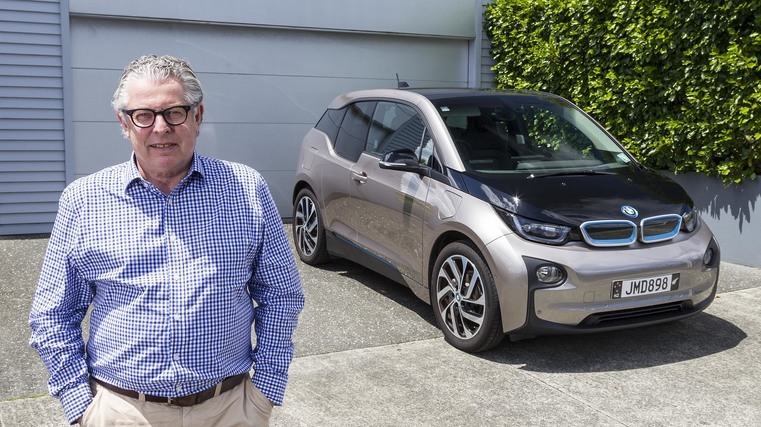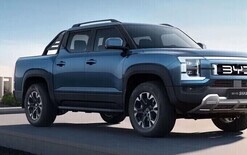Incentives needed to make switch

The chairman of Drive Electric has called on the government to focus on incentives to promote the more widespread uptake of electric vehicles (EVs).
Mark Gilbert realises the word “incentive” strikes fear into many, but he’s keen to point out, “we’re not talking about the use of taxpayers’ funds, are also focusing on the ability of the fleet take up electric cars faster by the public”.
That, he believes, in turn, will lead to more EVs going into the second-hand market as companies renew their fleets every two to three years.
“One of the major contributors to EVs on our roads presently are used imported vehicles coming out of the UK and Japan,” says Gilbert.
“Those from the UK are effectively being imported with a level of incentives that are coming through in the UK’s pricing, which I believe is about £5,000 [or roughly NZ$9,740] per units, so that’s quite significant. That’s probably leading to the volume of used vehicles.
“But focusing on fleets, We know the government is looking at this and there are lots of balls in the air. We know the Interim Climate Change Commission has probably got a view on how EVs can help achieve carbon targets.
“We see the opportunity to address some of the pricing issues. We’ve called it Project Switch, which includes applying a fringe-benefit tax value [FBT] calculated on the new-vehicle price for the whole of life of that car in the fleet.”
Gilbert using the example of a car leaving the fleet rather than its replacement as a starting point.
“If you look a Toyota Corolla going out of the fleet, that’s probably about a $25,000 to $30,000 vehicle in fleet terms,” he says. “But replacing it with the likes of a Renault Zoe, which is double the price of the Corolla, means most fleets would probably not consider the Zoe unless there was some other consideration.
“We feel just pull the lever of FBT for a period or for a number of vehicles, not for all time. That might actually feed so more because of conversations the Sustainable Business Council has had – and it has found this – and that’s the FBT component on top of the price premiums is one step too far for [some] companies to consider EVs.
“Even with the incoming Nissan Leaf, which will have a price of about $60,000 I think, you are paying FBT on twice the price, so it’s the opportunity-costs argument I suppose.
“It’s a way of approaching the fleet market slightly differently. For a period, whatever vehicles you’re taking off the market and replacing with EVs, the FBT for the first few years could be the value of outgoing cheaper vehicle rather than the incoming more expensive one.”
Gilbert told RNZ fleets tend to renew every two to three years, but there are other factors, such as tracking residual values, when it comes to supply and demand.
“These are all factors in a changing fleet. It’s not always a time matter. There’s a lack of fleet uptake and most of the EVs on the road are probably owned by private individuals. They form the volume today.
“We’re not suggesting they don’t get a helping hand as well. We’re talking about two things. The government could play with GST a bit because of what it’s going to do for renewable energy uptake and demand in general – possibly a GST holiday.
“The other idea that gets bandied around, which is being done quite well overseas, is the feebate idea of penalising polluters and giving some benefit to lower-emission vehicles. There’s an example in Sweden of this and it works well. There are other ways of assisting private individuals, so it’s not all just geared towards fleets.”
With the Zero Carbon Bill being introduced to parliament by the government in May, Gilbert notes there’s a “big carbon discussion coming up and perhaps it’s all wrapped up in that, and there’s a budget to be announced soon” when it comes to action by the government.
“The push we have got is that our members, which are a lot of corporates, are saying what is actually going on,” adds Gilbert.
“A lot of corporates committed last year to 30 per cent of their fleets being electric by 2021 and they’re well on the way to that. But you’ve had government departments reneging on any commitment to doing anything, which has forced David Parker to suggest to them they need to reduce CO2 emissions from their fleets or they will have to look at some form of EV going forward.
“I’m not suggesting nothing is being looked at, but maybe it’s more complex and the government needs more assistance. So far, the coalition hasn’t been backwards in putting working groups together on difficult topics and maybe it needs to do a bit more on this one.
“Is the tax thing a turn-off? After the capital-gains tax debacle? In the former National government, this was also the same. Bill English had his hands on those taxes and didn’t want to change anything. These are options.
“The feebate scheme, if done right, could address corporate and private requirements or expectations as far as some form of incentive. Whether it goes far enough, who knows.
“When a company with a fleet, of let’s say small cars, wants to replace it, it’s going to pay a price penalty to go electric. But it’s in New Zealand’s, perhaps, longer-term interest to say they do because of our abundance of renewable energy – and all of what that can deliver over time and wide economic benefits.
“FBT… is just a mechanism to change behaviours in the market, which will have more benefits for New Zealand in the long term.”
You can listen to Gilbert’s full interview on Radio NZ by clicking here.
Footnote: The previous National government had a target of 64,000 EVs to be on Kiwi roads by 2012. The figure currently stands at about 13,800.





